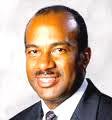
Dean, an electrical engineer who happens to be Black, is co-creator of the personal computer. He’s a major reason why computing entered our everyday lives.
When we talk about encouraging more Black men and women to pursue careers in science, technology, engineering and math, we should talk about Mark Dean. He is among the greatest examples of African-Americans who have succeeded in STEM.
Sadly, he is also a rarity.
For every 100 American jobs in STEM fields, six are held by Blacks, the U.S. Census Bureau reports. Small wonder, given that the percentage of Blacks earning STEM degrees had fallen to 7.5 percent as of 2009, the most recent year government statistics are available. Of the more than 5,000 Ph.D.s in physics, astronomy, chemistry and physical sciences that year, only 89 were awarded to Blacks.
We shortchange ourselves as a country if we fail to remove the obstacles facing all Americans in their pursuit of STEM. We place our future at risk if we do not provide new incentives and support for such a pursuit.
Where is the national urgency to address the issue? A growing body of evidence suggests that bringing more Black men and women—as well as other underrepresented segments of the population—into STEM fields would make the U.S. more competitive.
Consider a study released last fall by the Center for Talent Innovation, a New York think tank. It explored how “two-dimensional” (2-D) diversity influenced workplace innovation. 2-D diversity reflects both inherent diversity—race, gender, socioeconomic background and the like—and acquired diversity, or exposure to a variety of situations and experiences. Companies embracing people with a high degree of 2-D diversity tend to be more innovative, according to the center’s study.
Corporate leaders tend to agree on the influence of diversity on innovation. Forbes magazine surveyed 321 big-company executives on the topic in 2011. Eighty-five percent said “a diverse and inclusive workforce is crucial to encouraging different perspectives and ideas that drive innovation.”
This is not surprising. From biology, we know that diverse ecological systems thrive while homogeneous systems struggle.
The importance of diversity to innovation and American competitiveness is spelled out in legislation currently being considered by Congress. The America COMPETES Act—first approved in 2007 and due for its second reauthorization this year—would increase investment in university research and commercialization to ensure the country’s future strength in the global marketplace. An entire section of the act is dedicated to removing “the cultural and institutional barriers to expanding the federal and academic STEM workforce.” This section prescribes actions to be taken that would promote more diverse representation in STEM.
The problem is, the first America COMPETES Act was never fully funded, and its reauthorization is now overdue. Moreover, the real work to be done in increasing the numbers of underrepresented minorities in STEM, particularly Blacks, is more comprehensive and far-reaching. We have to begin in early childhood education, continue through high school and sustain it throughout college.
How do we accomplish this? Contrary to what you may have heard in the popular media, it is not a simple matter of pulling up sagging pants. The types of educational programs and interventions required are well known and documented. At Georgia Tech, we have produced the most African-American and minority engineers at all degree levels combined over the past decade. As an example of a successful program, Georgia Tech has contributed significantly to the production of doctoral degrees in STEM fields awarded to minorities through the Facilitating Academic Careers in Engineering and Science (FACES) program sponsored by the National Science Foundation since 1998. Since the inception of FACES, Georgia Tech has awarded more than 400 STEM Ph.D.s to underrepresented students.
There are pockets of success across America at both the K-12 and higher education levels. We haven’t moved beyond these pockets. There is no widespread movement based on these successes.
We have learned that all that is really required is adequate resources and the will to address the issue. America’s diversity is a competitive advantage. It’s well past time to leverage that advantage for the benefit of all.
Dr. Gary S. May is Dean of the College of Engineering at Georgia Institute of Technology.















